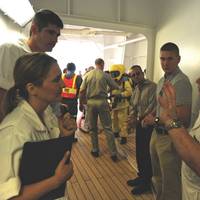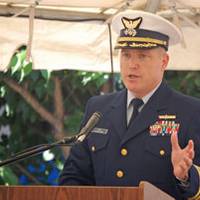The Center(s) of Expertise

U.S. Coast Guard's Safety Strategy Incorporates Tightly Focused Training at Carefully Chosen Venues. The U.S. Coast Guard opened seven National Centers of Expertise in 2009, locating three alone on the busy Gulf Coast, The concept of national centers of expertise – or “centers of excellence” – dates back to the 1960s when technology became more advanced and required new skill sets. The U.S. Army, Navy, Air Force and Marine Corps all operate such hubs, as do federal agencies, foreign governments and industries ranging from manufacturing to health care.
How to Start A Towing Vessel NCOE

Last summer, USCG Commander Gregory Case was charged with transforming the Coast Guard’s Towing Vessel National Center of Expertise (TVNCOE) from a plan on paper to a brick and mortar reality. The center is one of seven National Centers of Expertise, and is charged with training towing vessel examiners and inspectors, being a repository of towing vessel expertise and forming and strengthening partnerships with industry. In May 2010 the center was officially opened in Paducah, Kentucky.
Jobs at CG Centers of Expertise
The Coast Guard announced the opening of the first installment of civilian Vacancy Announcements for the five new National Centers of Expertise (NCOE). These will be GS-12 and GS-13 positions. The centers will have four to a maximum of nine inspectors/ investigators attached; only two to three CG mildet. The center employees are marine inspectors or investigators fully engaged in their primary inspections / investigations assignments who will also train student inspectors, advise policy-makers, regulation developers or operational program managers on trends, best practices, leading indicators, problematic issues or other functional area concerns.





